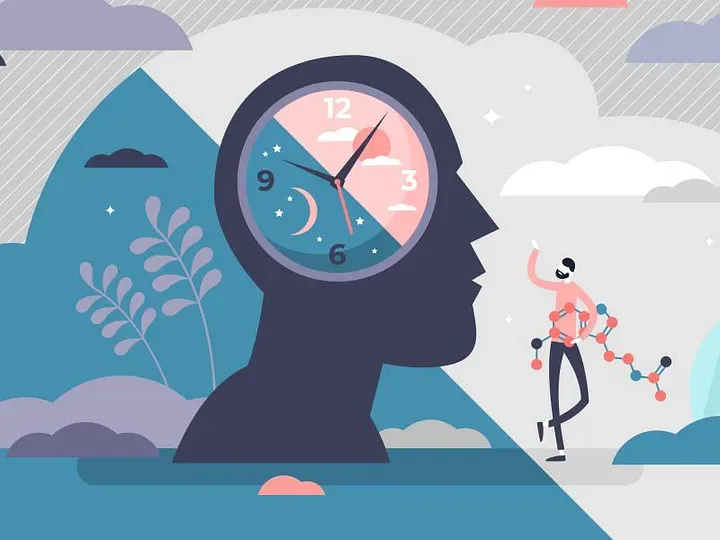What is Biological Clock?
The biological clock, often referred to as the circadian rhythm, is a natural, internal process that regulates the sleep-wake cycle and various physiological and behavioral processes in living organisms, including humans. These rhythms are influenced by environmental cues, primarily light and darkness, and are driven by the body’s internal “master clock” located in the suprachiasmatic nucleus (SCN) of the brain.

It is controlled by a group of nerve cells in the brain called the suprachiasmatic nucleus (SCN). The SCN receives signals from the eyes about the amount of light and darkness in the environment, and uses this information to adjust the body’s clock.
The biological clock is important for many reasons. It helps us to stay alert and productive during the day, and to sleep soundly at night. It also plays a role in our overall health and well-being. For example, people who have disrupted circadian rhythms are more likely to experience problems such as obesity, diabetes, heart disease, and depression.
Here are some key aspects of the biological clock:
- Circadian Rhythm: The circadian rhythm is a roughly 24-hour cycle that influences various physiological functions, including the sleep-wake cycle, body temperature, hormone production, and alertness. It plays a critical role in maintaining regular patterns of sleeping and waking.
- Light and Dark: Light exposure is the most potent environmental cue that synchronizes the biological clock. When we’re exposed to natural light during the day and darkness at night, it helps keep our circadian rhythms aligned with the external world.
- Jet Lag and Shift Work: Traveling across time zones or working irregular hours can disrupt the circadian rhythm, leading to conditions like jet lag and shift work sleep disorder. It often takes time for the body to adjust to these disruptions.
- Melatonin: The hormone melatonin is produced by the pineal gland and plays a crucial role in regulating sleep-wake cycles. Melatonin levels typically rise in the evening, signaling the body that it’s time to sleep.
- Health Implications: Disruptions to the biological clock can have various health implications. Chronic disturbances in sleep patterns, such as those experienced by shift workers, have been associated with increased risk of various health issues, including sleep disorders, mood disorders, and metabolic conditions.
- Individual Variations: While the average circadian rhythm is approximately 24 hours, there can be individual variations. Some people are “night owls” with a later natural rhythm, while others are “morning larks” with an earlier one.
- Aging: The biological clock can shift as people age, which often leads to older individuals becoming “morning types” and experiencing changes in their sleep patterns.
Understanding and respecting your biological clock is essential for maintaining good sleep hygiene and overall health. It can help you establish a regular sleep schedule, promote healthy sleep patterns, and minimize disruptions that can affect your well-being.
In addition to its role in sleep-wake regulation, the biological clock also plays a role in female fertility. The number of eggs in a woman’s ovaries begins to decline after puberty, and the quality of the eggs also decreases with age. As a result, a woman’s chances of getting pregnant decrease with age.

The term “biological clock” is often used colloquially to refer to a woman’s fertility, but it is important to note that the biological clock is a complex process that affects many aspects of our health and well-being.
Here are some tips for maintaining a healthy circadian rhythm:
- Get regular exposure to sunlight, especially in the morning.
- Avoid caffeine and alcohol before bed.
- Establish a regular sleep schedule and stick to it as much as possible, even on weekends.
- Create a relaxing bedtime routine.
- Make sure your bedroom is dark, quiet, and cool.
If you are having trouble sleeping or staying alert, talk to your doctor. They can help you to identify any underlying medical conditions and develop a plan to improve your sleep hygiene.




